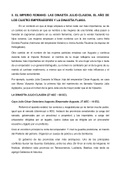College aantekeningen
Hoorcolleges FRE
Dit zijn de hoorcolleges van Fundamenteel Rights in Europe, met in blauw aantekeningen uit verschillende artikelen. Hier heb ik zelf een mooi cijfer mee gehaald. Als er behoefte is aan en beknopte samenvatting or werkgroep uitwerking, hoor ik het graag!
[Meer zien]













